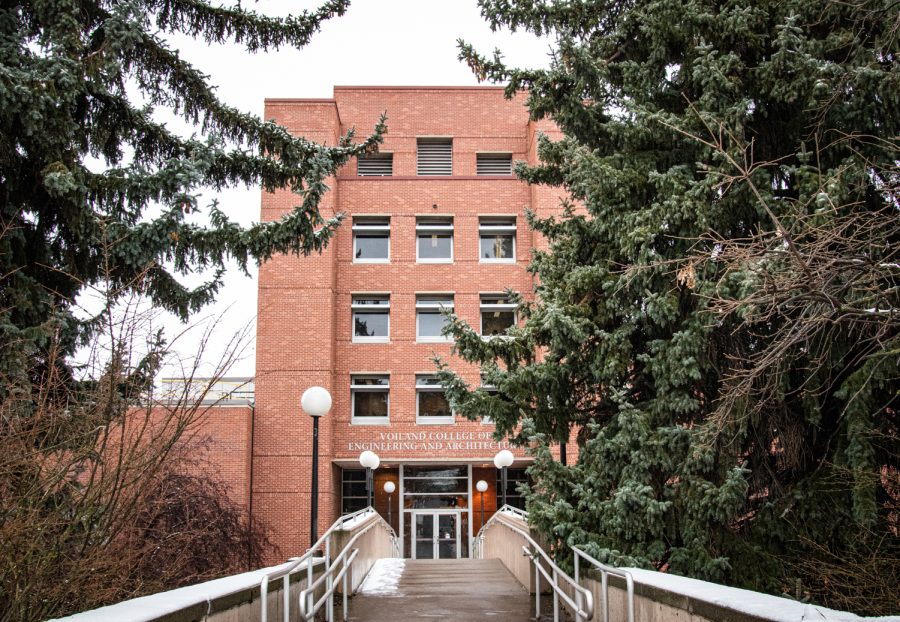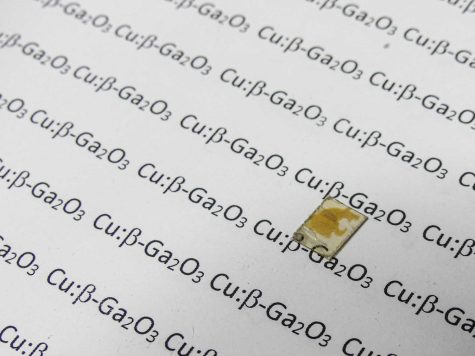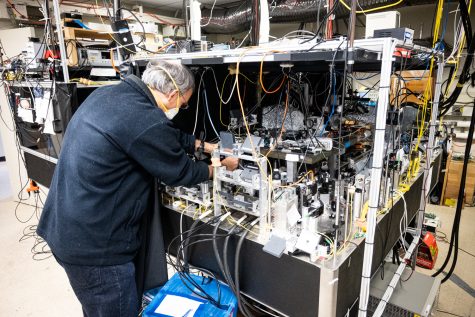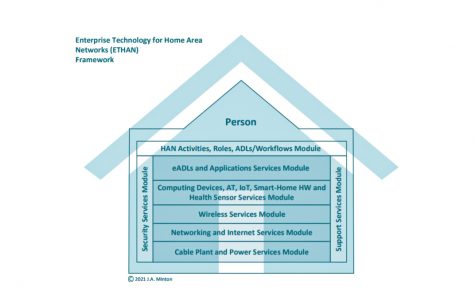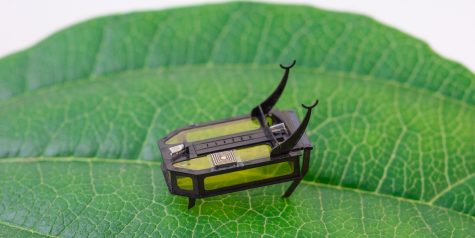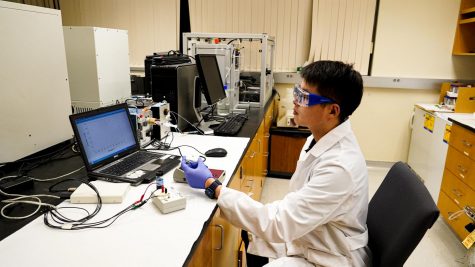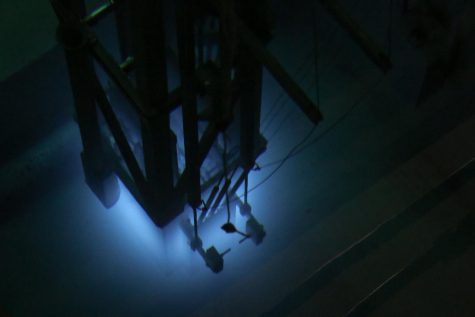Educating the grid
Grant will allow eight students to learn about power grid systems
The interdisciplinary program is led by four professors with the School of Electrical Engineering and Computer Science.
December 9, 2021
The School of Electrical Engineering and Computer Science received a $1.2 million grant from the U.S. Department of Education to help train eight doctorate students from underrepresented communities in power engineering and computer science.
The grant will fund a 36-month-long program called the Graduate Assistance in Areas of National Need (GANN), said Venera Arnaoudova, School of Electrical Engineering and Computer Science associate professor.
The students chosen for the GAANN fellowship must have superior academic ability, financial need and be U.S. citizens. The program also favors students who want to pursue a career in research or teaching, Arnaoudova said.
She said the eight students will gain the skills and experience necessary to teach power engineering and computer science.
Power engineering is a field within electrical engineering that focuses on managing the generation, transmission and distribution of electricity, said Anamika Dubey, School of Electrical Engineering and Computer Science assistant professor.
“The goal is to train our students on these interdisciplinary topics of national interest,” Dubey said. “These students will contribute to managing and working with modern power grids, which is evolving into a highly dynamic network with significant variability and uncertainty introduced by renewable energy resources such as wind and solar energy.”
Variable energy is energy that is not constant, she said. Wind and solar energy are examples of variable energy because they can produce electricity for a limited time.
“Power system engineers must be able to reliably operate the emerging power grid,” she wrote in an email. “One of the major challenges is to always maintain supply-demand balance with limited ability to store excess generation or provide for supply shortage.”
Power engineers must know when variable energy occurs because they work with power grids, which have limited storage and cannot store excess energy, she said. Forecasting tools help power engineers predict the amount of variable energy available.
The students will be taught how to use forecasting tools to help operate the power grid, Dubey said. However, the current tools cannot keep up with the power system, so students will learn how to potentially use or create tools that will better deal with the power system. One method they will learn about includes artificial intelligence, which is why the students are also learning interdisciplinary topics including computer science.
The program will also teach students about software engineering, which is a part of computer science. Software engineering deals with the design, development and management of software, said Assefaw Gebremedhin, School of Electrical Engineering and Computer Science associate professor.
AI is software that allows machines to closely mimic human thinking to perform given tasks, Gebremedhin said. AI will allow software engineers to create better forecasting programs.
“The common thing about these complex systems is that you would need to work with AI and massive data of different types,” he said. “These are data sizes that you would need good algorithms for, so data science and AI become a common theme across the different applications we look at.”
However, while AI can help software engineers, there is also a fear that AI will replace human jobs. Gebremedhin said AI does not replace humans but enables them to succeed.
“There are many processes and services that could be handled by machines,” he said. “The idea is to take off things that are routine, burdensome or would require too much computation, from humans and get them done by machines.”
Arnaoudova, Dubey and Gebremedhin will also be working with Noel Schulz, professor with the School of Electrical Engineering and Computer Science, in the training program, Gebremedhin said. The program will begin in the spring with the first recruits.

